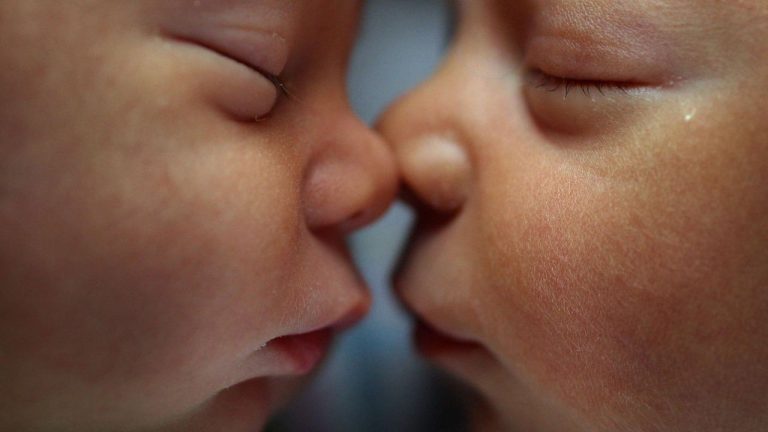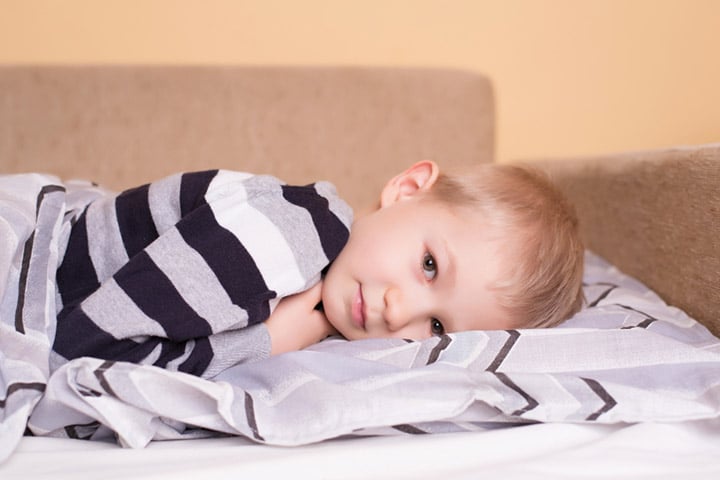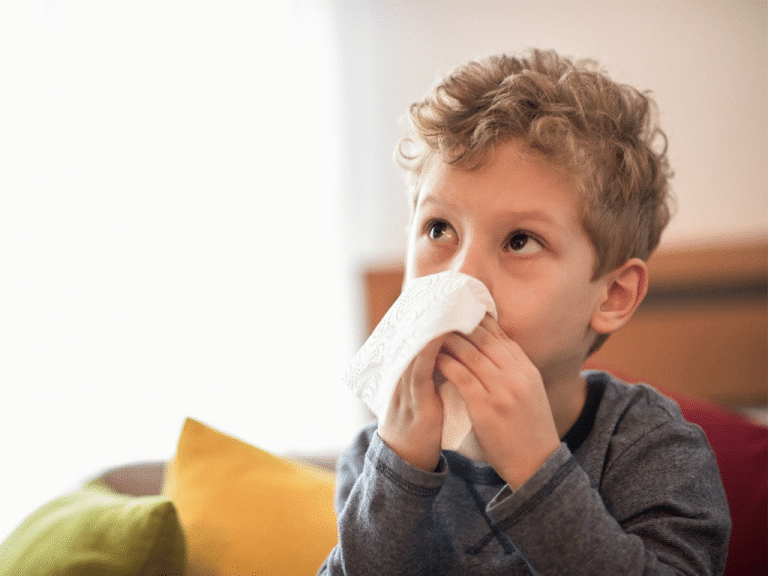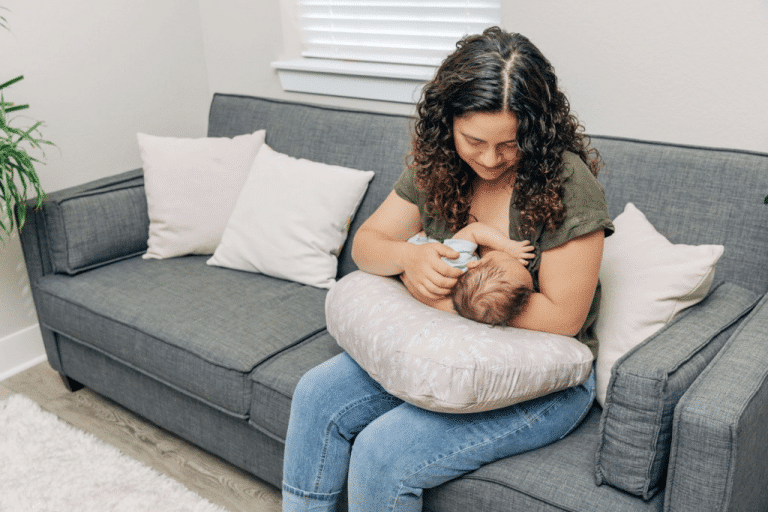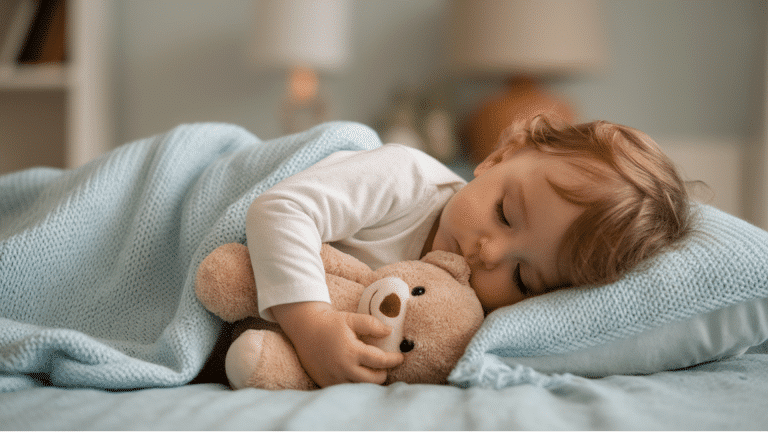Do you think sleep is crucial for the well-being of children? Yes, definitely! Because it helps them grow, learn, and stay healthy.
However, sometimes, parents notice changes in their child’s sleep behavior, a common behavior often referred to as sleep regression.
Then, what exactly is sleep regression? It’s nothing but a phenomenon when a child who used to sleep well starts having trouble sleeping.
Well, you might be wondering if environmental factors could be behind these sleep disturbances.
So, to clear your doubts, let’s dive deep into this and check whether this affects sleep regression in children.
Before diving into this content, read our previous blog to understand how it started. Our previous blog on 10-month sleep regression provides essential context to this topic.
Do Environmental Factors Affect Sleep Regression in Children?
Yes, environmental factors can influence sleep regression in children. Let’s delve into a few key aspects that might be affecting your little one’s sleep.
1. Noise Levels
Loud noises can disturb a child’s sleep but later cause sleep regression. As you know, kids are sensitive to noise, which can interrupt their peaceful sleep routine.
To prevent this, ensure a quiet sleep environment. You can use soft music to create a calm space. This helps your child sleep without disruptions, making a big difference in avoiding sleep issues.
So, by keeping noise levels down and creating a quiet bedtime setting, you are helping your child sleep better and reducing the chances of sleep regression.
2. Lighting Conditions
Does your child’s sleep is being affected by bright lights? The child’s sleep is often disturbed by bright lights, leading to sleep troubles.
Their little bodies understand darkness as a signal to sleep. However, to help them sleep well, use dim lights or blackout curtains to make their sleep area cozy and dark.
This way, your child can fall asleep more easily and stay asleep without disturbances, reducing the chances of sleep problems.
So, keeping the lights gentle and creating a dark, comfy space can significantly prevent sleep regression.
3. Temperature
If it’s too hot or cold, a child’s sleep can get disturbed, leading to various sleep issues. Just like we cannot sleep well in extreme temperatures, kids have the same problem.
So, to prevent this kind of situation, you can make the room comfy and dress your child right with light pajamas for hot days and cozy layers for cold ones.
This helps them sleep better without feeling too hot or cold, avoiding sleep problems. Ultimately, by making the room just right and picking the right clothes, you are stopping sleep issues from happening in children.
4. Bedtime Routine
Always remember that having a consistent bedtime routine is crucial to prevent sleep regression in children.
For this, you can do some relaxing activities before sleep, like reading a bedtime story or brushing your teeth. This routine signals your child that it’s time to settle down and get ready for sleep.
And if there are disturbances or the routine keeps changing, it can make falling asleep harder for your child.
So, prefer a simple bedtime routine every night to help your child feel secure and ready for a good night’s sleep, reducing the chances of sleep problems.
5. Screen Time
Too much screen time can affect a child’s sleep, leading to sleep issues. At the same time, screens emit light, making it hard for the body to know it’s time to sleep.
So, if your child spends a lot of time on devices before bedtime, it can make falling asleep tricky. To help them sleep easily, limit screen time before bed and encourage other calming activities.
This way, your child’s body can get ready for sleep without confusion. By keeping screen time in check, you ensure your child has better sleep and avoids other problems.
6. Physical Activity
Playing and moving around a lot is good for kids and helps them sleep better. When they use up their energy by playing, it makes them tired in a good way.
This tiredness makes it easier for them to fall asleep and stay asleep at night. But at the same time, if a child doesn’t play enough, their sleep might be restless or even worsen.
So, encourage your child to play and be active during the day. It’s like ensuring they have a fun and restful night’s sleep, lowering the chances of sleep problems.
7. Nutrition
Nutrition plays a vital role in terms of good sleep. That’s why always watch out closely for your child’s dietary habits.
And if they have sugary or caffeinated stuff close to bedtime, it can make them restless. So, giving them light and healthy snacks before bed is good if they are hungry.
Foods with lots of sugar or caffeine might make falling asleep harder. However, choosing the right snacks, you’re helping your child have a better chance at peaceful sleep.
It’s like making sure their tummy is full, which reduces the chances of sleep issues or regression.
8. Medical Condition
Sometimes, sleep issues in children can be influenced by things in their genes or medical conditions. It’s like how some things run in the family.
If a child has a medical condition, it might affect their sleep. For example, if they have trouble breathing or allergies, it can disrupt their sleep.
So, if you notice continuous sleep problems, it’s good to talk to a doctor. They can determine if there’s anything in the genes or a medical condition affecting your child’s sleep.
However, understanding and treating these factors can make a big difference in helping your child sleep better.
Conclusion
Last but not least, remember that a child’s sleep is influenced greatly by their surroundings. Ensure their sleep spot is peaceful, not too noisy or bright for better sleep.
Always follow a bedtime routine every night, keep the room comfortable, and limit screen time before bed.
Also, manage stress in the family, handle changes gently, and pay attention to what they eat.
However, doing these things helps to create the perfect sleep setup for your child. It means they are more likely to sleep well and not have sleep issues further.

